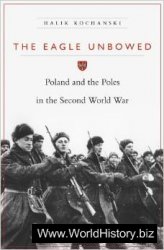1944-1953
VLADIMIR O. PECHATNOV
By mid-1944, the end of the war was finally within sight. After the great battle of Kursk and the D-Day invasion of Normandy, the Axis powers were in retreat. Soviet leaders began to look ahead, sorting out their agenda and priorities for the postwar period.
The war losses of the USSR were staggering: the country lost at least 27 million people and about a quarter of its reproducible wealth; over 1,700 cities and towns were destroyed and more than 31,000 industrial enterprises demolished. With its human resources depleted and much ofits productive capacity destroyed, the country faced a huge task of postwar reconstruction. Yet there was also a new sense of optimism and self-confidence among the populace justly proud of defeating the Nazi juggernaut which the rest of the world could not stop. The Stalinist system survived the test, having proved its ability to concentrate resources, maintain internal discipline, and act decisively under enormous pressure. The Great Patriotic War (as World War II came to be called in the USSR) endowed the Communist regime with broader legitimacy and brought Iosif Stalin to the peak of his popularity.
Externally, the Soviet position was also marked by contradictions. On the one hand, the coming victory was bound to bring the USSR to new heights of strategic and political influence. Its two mortal enemies - Germany and Japan - laid prostrate; its military predominance over the Eurasian landmass seemed assured along with a new status as a great power and a key member of the victorious Grand Alliance. The Soviet model gained new prestige, while the growth of Communist and Left parties in Europe and national liberation movements in Asia opened new avenues for expanding Soviet influence. On the other hand, the war graphically exposed the country’s critical strategic liabilities: easily penetrable borders, lack of ready access to key seaways, and the absence ofpower-projection capabilities. The narrow escape from a shattering defeat at the hands of a much smaller but technologically more advanced Germany was the best proof of the regime’s vulnerability and backwardness.

5. Ruins of the northern Soviet city of Murmansk, June 1942. The war devastated large areas of the Soviet Union; a herculean task of reconstruction lay ahead.
"Lenin left us a great estate and we made shit out of it," was Stalin’s dictum to his lieutenants in the first weeks of the war.102 No wonder security concerns remained paramount in the Kremlin’s thinking about the postwar world.




 World History
World History









